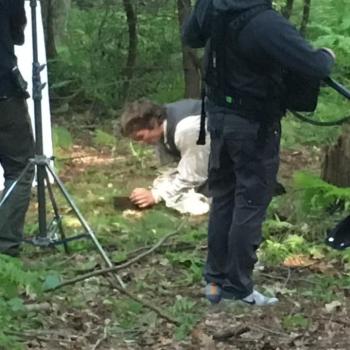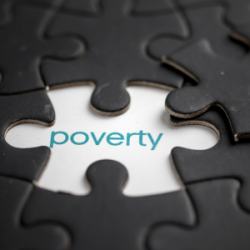In the late 6th century, Pope Gregory the Great was the first Roman pontiff to describe himself as servus servorum Dei: "slave of the slaves of God." His failure to see anything wrong with the live institution of slavery itself -- a blind spot he shared with the entire world of his time -- enabled him to adopt slavery as a metaphor for the servant-leadership he exemplified so well. It is that model which so many bishops have forgotten. Indeed, they had started forgetting it in the 4th century, when the emperors Constantine and Theodosius privileged them as officers of the state. The collapse of the Western empire did force the bishops, especially those of Rome, to assume a degree of temporal authority that some of them exercised well. Yet what St. Athanasius said in the 4th century has been true of all too many bishops since, even in Rome: "the path to hell is paved with the skulls of bishops."
Of course no earthly or demonic force can destroy the Church; as Cardinal Consalvi pointed out to Napoleon, even the best efforts of bishops have failed to do so. And that much will remain the case. But God is as interested in saving the souls of bishops as he in saving other souls. Hence he will often chastise the bishops by permitting the Church to be persecuted in their persons. Such events remind some bishops -- the ones disposed to be so reminded -- that they are servant leaders, and that they should expect no easier a fate on earth than that of the One they are called to serve through serving His people.
That's what's starting to happen to the leaders of the Church in what is broadly called "the West." I think the pope sees it. But he is not in the majority among his brother bishops. The recently retired Archbishop of Brussels, Cardinal Danneels, doesn't see it. Cardinal Sodano, formerly Vatican secretary of state and now dean of the College of Cardinals, doesn't see it. And how many bishops in the U.S. have admitted that their reflexive interest in protecting their culture of privilege, which included protecting a lavender mafia, was the cause of their own complicity in the sex-abuse-and-coverup scandal? It seems that almost everybody gets it but them. Until they get it and change accordingly, things will only get worse for the Church. If and when they do get it, then and only then will things get better.
This is a spiritual law I've observed at work even in my own life. Once, for about a dozen years, I had an academic career. Thus I was part of a magic circle: I got to treat abstractions as realities; I interacted mostly with the cultured and like-minded; I had enough vacation time to actually think and write about what interested me. I didn't have to take work that bored and alienated me just to keep a roof over my family's head. I was very comfortable and began, subtly and insensibly, to think myself immune from the iron laws of ordinary life that the vast bulk of humanity groaned under daily. My fall was slow but sure; I hit bottom when I suffered a severe bout of clinical depression a decade ago. When I recovered, my life became harder than it had ever been. Although I had nobody but myself to blame, it took me another several years to realize that. Aside from a few brief and happy interludes, my life has continued being hard -- but no harder than that of most of the world's people, and easier than some. So if my circumstances ever improve enough to let me earn a living in roughly the sort of way I once did, I will not take the privilege for granted. I will be grateful, for I will have been chastened enough to see that all is gift, and that the pleasant gifts are less deserved than the unpleasant ones.
That's what the leadership of the Church needs to learn by experience. A few have, but most have not. Before there can be resurrection, there must be death. The increasing size and strength of the Church in the global South may be part of the resurrection; it is certainly where the Church's center of gravity is shifting and is likely to remain. But the lessons about to be learned by the Church in her historic base of influence will eventually have to be learned everywhere.
Michael Liccione earned his Ph.D. in philosophy from the University of Pennsylvania and has taught in a variety of institutions, mostly Catholic. He is also a freelance writer whose work has been published in numerous Catholic publications. He blogs at Sacramentum Vitae, where this piece first appeared. It is reprinted with permission.




